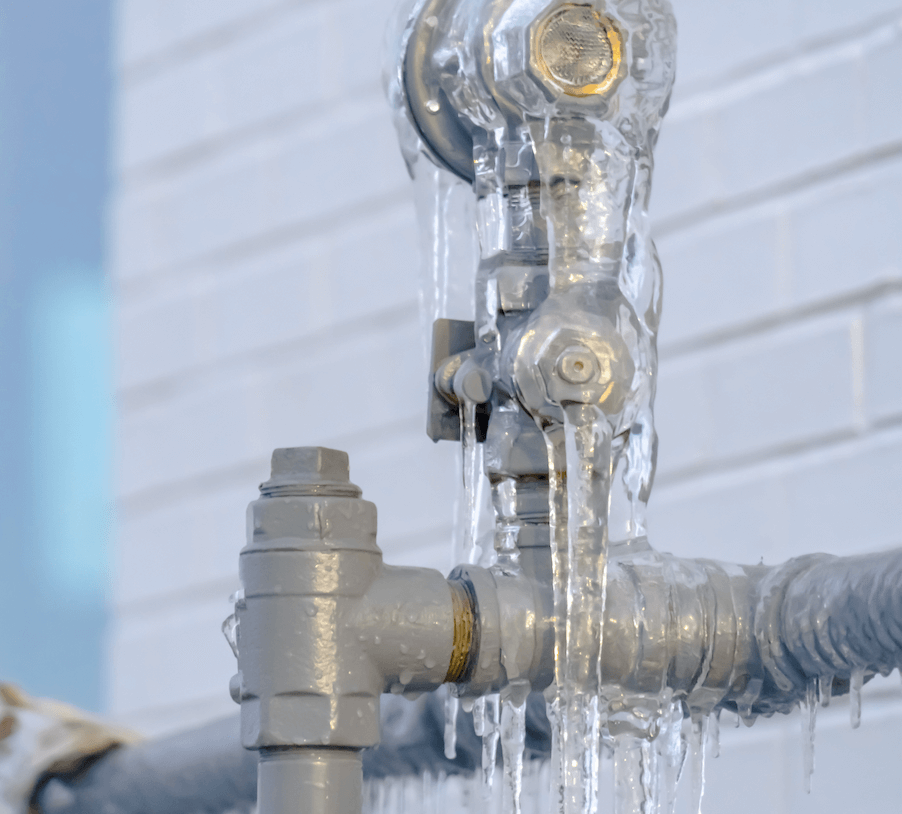We've unearthed this article involving How To Avoid Freezing Pipes directly below on the net and accepted it made perfect sense to share it with you here.

Cold weather can wreak havoc on your plumbing, particularly by freezing pipes. Here's how to prevent it from happening and what to do if it does.
Intro
As temperature levels decrease, the danger of frozen pipelines rises, potentially causing expensive repair work and water damages. Recognizing exactly how to prevent icy pipes is crucial for property owners in cool climates.
Understanding Icy Pipes
What triggers pipes to freeze?
Pipelines freeze when revealed to temperatures listed below 32 ° F (0 ° C) for extended periods. As water inside the pipelines freezes, it broadens, taxing the pipeline wall surfaces and possibly triggering them to break.
Threats and damages
Frozen pipes can cause water disruptions, residential property damages, and pricey repair work. Ruptured pipes can flood homes and trigger considerable architectural damages.
Indicators of Frozen Piping
Identifying icy pipelines early can stop them from breaking.
Just how to determine frozen pipes
Look for decreased water circulation from taps, unusual odors or sounds from pipelines, and visible frost on exposed pipelines.
Prevention Tips
Insulating vulnerable pipelines
Wrap pipelines in insulation sleeves or utilize heat tape to shield them from freezing temperature levels. Focus on pipes in unheated or exterior areas of the home.
Heating methods
Keep interior areas effectively warmed, especially locations with plumbing. Open up cabinet doors to permit warm air to flow around pipes under sinks.
Shielding Outdoor Pipes
Garden pipes and outdoor faucets
Separate and drain garden hoses before winter. Set up frost-proof spigots or cover exterior faucets with protected caps.
What to Do If Your Pipes Freeze
Immediate actions to take
If you think icy pipelines, maintain taps open up to relieve stress as the ice melts. Utilize a hairdryer or towels taken in warm water to thaw pipes gradually.
Long-Term Solutions
Architectural modifications
Think about rerouting pipes far from outside wall surfaces or unheated areas. Include extra insulation to attics, basements, and crawl spaces.
Upgrading insulation
Purchase premium insulation for pipes, attics, and wall surfaces. Proper insulation aids keep constant temperatures and lowers the danger of icy pipelines.
Verdict
Protecting against frozen pipes calls for proactive actions and quick actions. By comprehending the causes, signs, and preventive measures, home owners can protect their plumbing during cold weather.
Helpful Tips to Prevent Frozen Pipes this Winter
UNDERSTANDING THE BASICS: WHY PIPES FREEZE AND WHY IT’S A PROBLEM
Water freezing inside pipes is common during the winter months, but understanding why pipes freeze, and the potential problems it can cause is crucial in preventing such incidents. This section will delve into the basics of why pipes freeze and the associated problems that may arise.
THE SCIENCE BEHIND FROZEN PIPES
When water reaches freezing temperatures, it undergoes a physical transformation and solidifies into ice. This expansion of water as it freezes is the primary reason pipes can burst. As the water inside the pipe freezes, it expands, creating immense pressure on the walls. If the pressure becomes too great, the pipe can crack or rupture, leading to leaks and water damage.
FACTORS THAT CONTRIBUTE TO PIPE FREEZING
Low Temperatures: Extremely cold weather, especially below freezing, increases the risk of pipes freezing. Uninsulated or Poorly Insulated Pipes: Pipes located in unheated areas, such as basements, crawl spaces, or attics, are more prone to freezing. Insufficient insulation or lack of insulation altogether exacerbates the problem. Exterior Wall Exposure: Pipes running along exterior walls are susceptible to freezing as they encounter colder temperatures outside. Lack of Heating or Temperature Regulation: Inadequate heating or inconsistent temperature control in your home can contribute to frozen pipes. PROBLEMS CAUSED BY FROZEN PIPES
- Pipe Bursting: As mentioned earlier, the expansion of water as it freezes can cause pipes to burst, resulting in significant water damage.
- Water Damage: When pipes burst, it can lead to flooding and water damage to your property, including walls, ceilings, flooring, and personal belongings.
- Structural Damage: Prolonged exposure to water from burst pipes can compromise the structural integrity of your home, leading to costly repairs.
- Mold and Mildew Growth: Excess moisture from water damage can create a favorable environment for mold and mildew growth, posing health risks to occupants.
- Disrupted Water Supply: Frozen pipes can also result in a complete or partial loss of water supply until the issue is resolved.
WHY CERTAIN PIPES ARE MORE PRONE TO FREEZING
- Location: Pipes located in unheated or poorly insulated areas, such as basements, crawl spaces, attics, or exterior walls, are at higher risk of freezing.
- Exterior Pipes: Outdoor pipes, such as those used for irrigation or exposed plumbing, are particularly vulnerable to freezing as they are directly exposed to the elements.
- Supply Lines: Pipes that carry water from the main water supply into your home, including the main water line, are critical to protect as freezing in these lines can affect your entire plumbing system.
- Underground Pipes: Pipes buried underground, such as those connected to sprinkler systems or outdoor faucets, can be susceptible to freezing if not properly insulated.
https://busybusy.com/blog/helpful-tips-to-prevent-frozen-pipes-this-winter/

I am just very fascinated by Preventing and dealing with frozen pipes and I really hope you liked our post. Sharing is nice. One never knows, you could be doing someone a favor. Thank you for being here. Revisit us soon.
Information Here